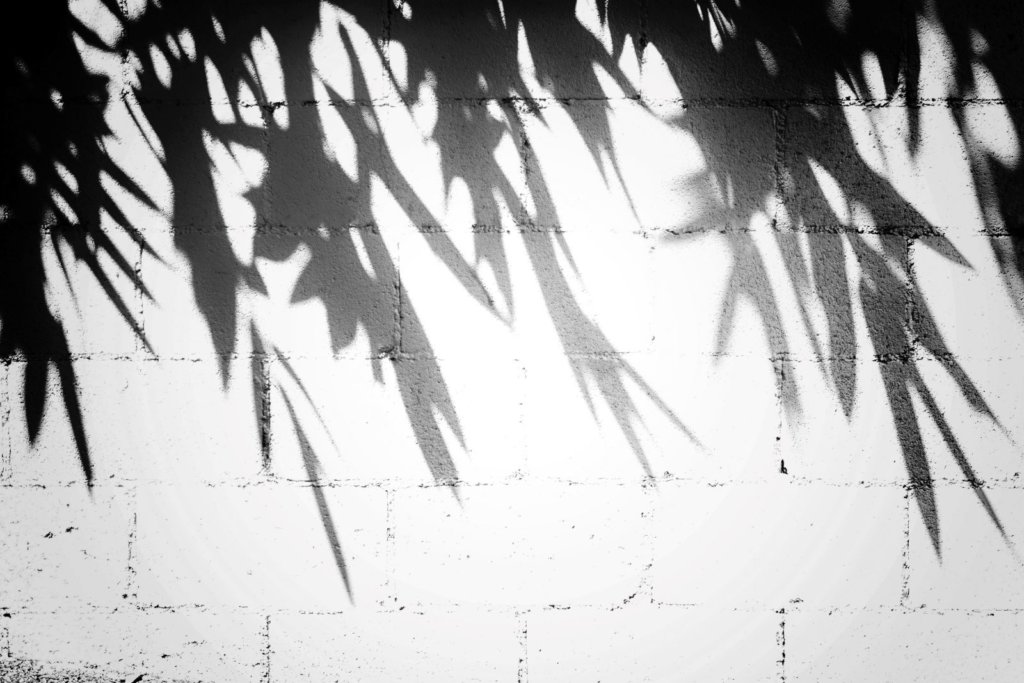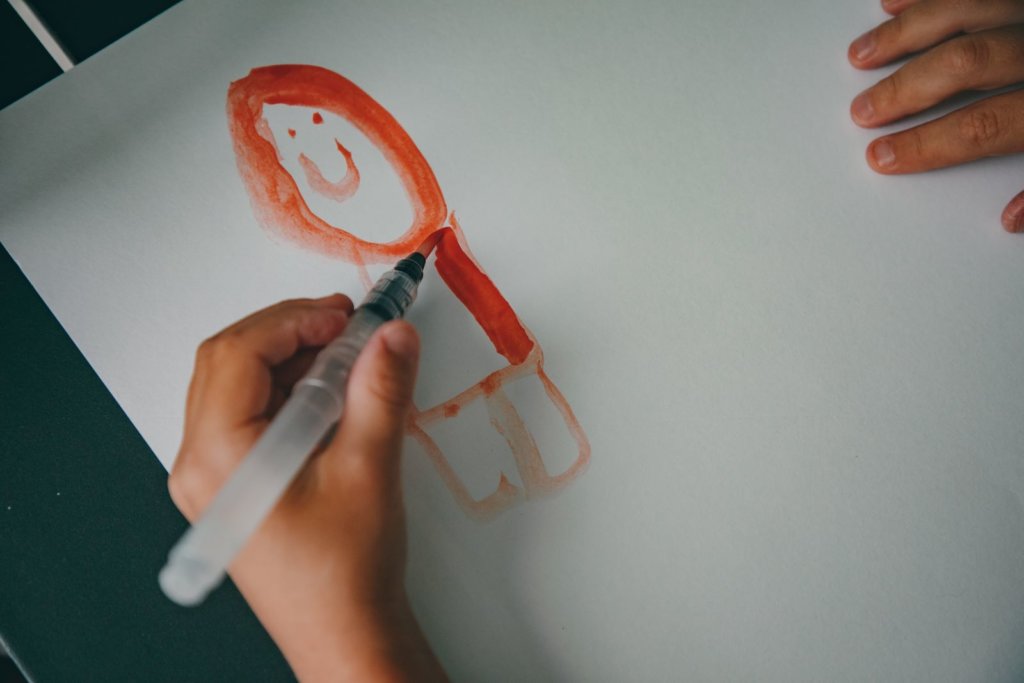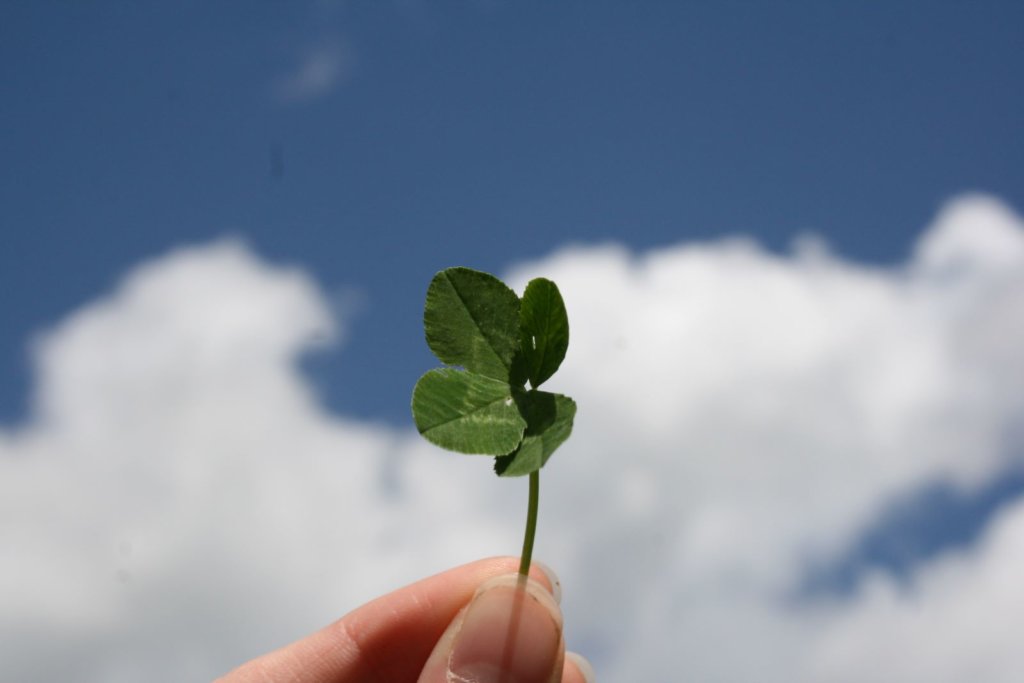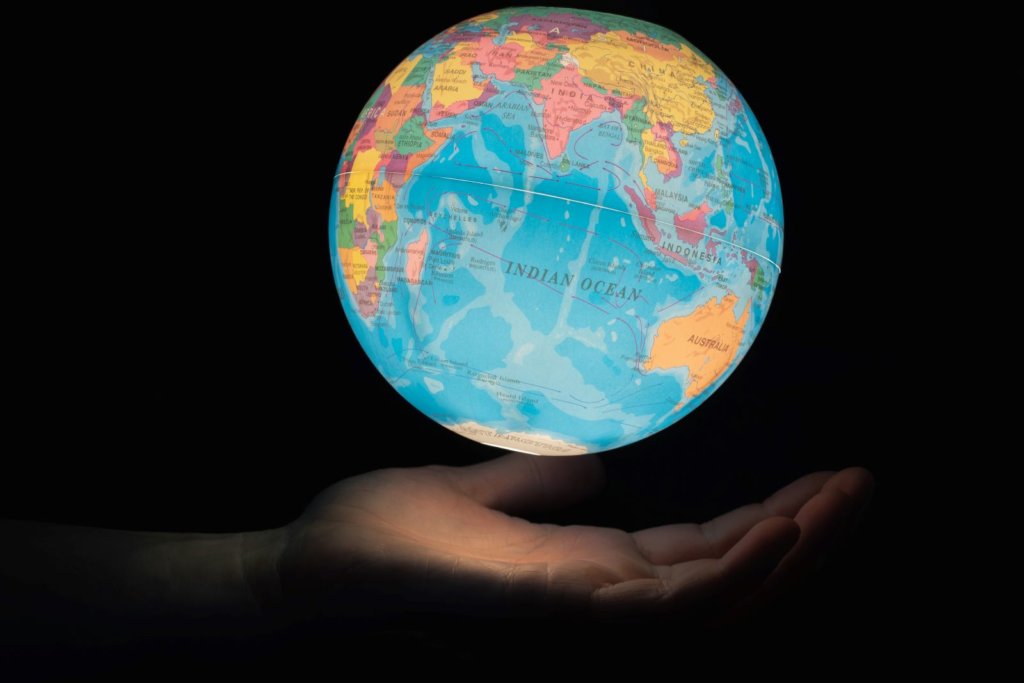On Saturday I sat in the backseat of a car with a moon roof. I stared up at the sky and noticed a rainbow hidden in the clouds. I lowered my sunglasses because usually, that helps me see colors better but, in this case, I was surprised. Leaving my sunglasses on helped me more clearly see the rainbow. It blew my mind a little, to be honest.
We talk a lot about darkness and associate it with bad or evil things. Darkness is something to be scared of, it’s dangerous. But is that always true? Seeing this rainbow through my sunglasses reminded me sometimes darkness is illuminating. That happened for me this week not only with a rainbow but also with a better understanding of trauma.
When I first heard the news about antisemitic banners hanging over an LA freeway, my response was, “Where will I run?” That’s not rational or reasonable. No one was chasing me! Furthermore, I’ve never directly experienced antisemitism – no one has called me names for wearing a Jewish star or bullied me online. So where did this response come from? It’s a bodily memory from my ancestors.

The rainbow I saw wasn’t nearly this defined but you get an idea of what I saw. Photo by Mathias Reding on Unsplash
My maternal ancestors lived in Eastern Europe and even before the Holocaust, it wasn’t free of antisemitism. I don’t know much about them, but I do know about my grandparents – both of whom were Holocaust survivors. They both had horrific experiences, but I think my, “Where will I run?” response comes from my grandmother.
During World War II, she dug her way through the ground floor of a Lithuanian ghetto and escaped via a sewer line into the woods. In other words, she ran. To my surprise, when I encounter antisemitism in places I don’t expect, like an LA freeway, that same response shows up in me. My “lizard brain” gets activated. We all have this brain, it’s our limbic system, and it doesn’t respond to logic or reason. The limbic system scans all sensory inputs and responds in a fraction of a second by letting them into the cortex, the thinking part of the brain, or initiating the fight, flight, freeze, or fawn response.
As trauma-therapist Resmaa Menakem writes in his book My Grandmother’s Hands, “This mechanism allows our lizard brain to override our thinking brain whenever it senses real or imagined danger. It blocks any information from reaching our thinking brain until after it has sent a message to fight, flee, or freeze.”
In other words, you can’t reason with your lizard brain. It just responds. What I hadn’t realized, and what I think many people also don’t understand, is that when it comes to big issues, the “isms” and “phobias” we’re facing right now, you can’t reason those away. It might work with some people to explain why racism is harmful to everybody, including white people, but if a white-bodied person feels fear or anger in their nervous system when they encounter a melanated body, logic goes out the window and racism continues.

Shadows can offer a new perspective sometimes. Photo by Tim Mossholder on Unsplash
Similarly, emotional appeals will also only take you so far. Just after George Floyd’s murder, there was a surge of interest in antiracism. Emotions ran high and people purchased books and enrolled in classes more than they had before. But now, those classes and courses aren’t garnering as much interest or attention because emotion faded. But the body remembers. Menakem argues, “If we are to survive as a country, it is inside our bodies where this conflict will need to be resolved.”
After this week and experiencing my own version of alienation and othering, I agree. I can’t reason with people why antisemitic tropes are malarkey. I can’t emotionally convey why staying silent in the face of antisemitism is terrifying for me as a Jewish person. If you don’t get it, I can’t make you get it. What I can do though, is heal my own trauma.
When we do so we make room for growth in our nervous systems and that spreads. It’s like emotional contagion, but instead of emotion, something even more powerful. This isn’t a task relegated to oppressed groups, by the way. Every group has its own brand of trauma including white people. Responding with rage and aggression in the presence of an oppressed group is evidence of that.
Darkness revealed a lot to me this week. And not only a rainbow.
I dream of a world where we recognize logic and emotion only takes us so far. A world where we understand the power of trauma and create more space and peace within our nervous systems. A world where we confront our shadow to make the world a better place for ourselves and others. A world where we understand not only is light illuminating, so is the dark.
Another world is not only possible, it’s probable.
I enrolled in a novel writing class and I confessed to a fellow writer that I feel a lot of pressure to put into practice everything I’m learning. I want my dialogue to conceal and reveal. I want to keep the reader guessing but not withhold too much. I want the plot to be engaging while also emotionally stirring. And I want to do all that perfectly in the first draft.
There aren’t many areas of my life where perfectionism continues to show up, but this is one of them. I care so much about the heroine’s journey novel I’m writing and that means I want to do this story justice. I want it to be the best book it can possibly be and so, hello perfectionism. When I shared this angst with my friend she said to me, “Give yourself the grace of being a newcomer,” and it felt like rubbing aloe vera on a sunburn.
Ahhhhh. Grace. Yes. I know people talk about writing terrible first drafts and understanding that’s a part of the process, but characterizing a draft as “terrible” is a judgment. There’s space for perfectionism because if you know a draft is terrible, that means there’s a certain standard you have for the draft that it’s currently not meeting. When I say to myself, “This draft is awful. God, I can’t believe I wrote this,” I’m judging my efforts and not giving myself grace.

What if I let myself learn like a child? Photo by Anima Visual on Unsplash
I’ve never taken a creative writing class before. I know nothing about novel writing. I didn’t get an MFA; I got a bachelor’s in journalism. Ask me to write an anecdotal lead and I can bang one out in a jiffy. Ask me to write a novel and I’m stumped. In other words, novel writing is completely new to me and by holding myself to a high standard, I’m stifling creativity. I’m not letting myself play around. I’m not extending compassion and forgiveness toward myself. In other words, I’m not treating myself like I treat other beginners.
When my young nieces and nephews draw me a picture, I don’t say, “This is terrible. The head is three times larger than the rest of the body.” No, I exclaim in delight and say, “Wow! Look at that!” because they’re young and they’re just learning how to draw. I want to encourage them to keep going because they enjoy it. I don’t have expectations my nieces and nephews will be famous visual artists by the age of 8. I’m letting them be kids. However, I don’t do that with adults, either myself or others. As adults, there’s an expectation that we are at least competent with whatever we’re doing. That means not sucking at surfing, or not playing the piano without striking the wrong key, regardless of how long we’ve taken lessons.
Psychiatrist Dr. Gail Saltz says, “Culture is consumed with being an expert.” In fact, average levels of social perfectionism rose by about a third from 1989 to 2016 in a study of 41,000 college students. Is that number higher now? Probably.
We’re not giving ourselves the grace of being a newcomer. Even in the numerous articles I read on this topic, the writers said, “Let yourself fail,” or had titles with, “The case for being bad at something.” One even mentioned you’ll start off sucking but eventually, you’ll get better at crocheting or whatever your activity is. How about if we changed that narrative?
What if instead of proclaiming something we’re doing is good or bad, excellent or terrible, we let ourselves just be? What if we treated ourselves like small children, encouraging ourselves to keep learning and growing without judging the outcomes? I’d likely enjoy what I’m doing more. Maybe you would too.
I dream of a world where we approach new skills and hobbies with an open mind. A world where we leave judgment out of the equation as we learn something new. A world where we stop expecting we’ll be an expert at whatever we try. A world where we give ourselves the grace of being a newcomer.
Another world is not only possible, it’s probable.
I keep thinking about the cycle of luck. If you take a snapshot of an event, it might initially seem like bad luck. But if you widen your lens, so to speak, that unlucky event can become lucky.
There’s a story about a Chinese farmer who used a stallion to till his fields. One day the stallion escaped into the hills. The farmer’s neighbors lamented his bad luck but he replied, “Bad luck? Good luck? Who knows?” A week later, the stallion returned with a herd of horses from the hills. The neighbors rejoiced, congratulating the farmer on his good luck. He replied, “Good luck? Bad luck? Who knows?” The farmer’s son attempted to ride one of the wild horses but he fell off and broke his leg. Everyone exclaimed, “Oh no! What bad luck!” The farmer said, “Bad luck? Good luck? Who knows?”
Some weeks later, an army marched into the village and conscripted every able-bodied young man they found. Seeing the farmer’s son with his broken leg, they exempted him. Was it good luck or bad luck? Who knows!

Lucky, unlucky, who knows? Photo by Barbara Krysztofiak on Unsplash
I’m experiencing a bit of this bad luck-good luck cycle myself. About a year ago, I was in a car accident. I didn’t need to go to the hospital so it wasn’t major in that sense, but I was in acute pain for months, and then when the swelling in my neck, back, and shoulders subsided I needed physical therapy to regain range of motion and help build strength. I wouldn’t call being in a car accident “lucky.” I don’t think anyone would. But as a result of the car accident, I reached a personal injury settlement with the driver’s insurance company for thousands of dollars. With that money I was able to wipe out some of my debt so was the car accident a good thing?
At this snapshot in time, something good came from the bad, but what will I say another year from now? Unclear, but that’s my point. Life is filled with ceaseless ups and downs. We want to freeze time, to only experience “good” things but “good” things can turn into “bad” things. That dream job you landed? It’s so stressful it starts to affect your health and your relationships. The beautiful home you purchased? Infested with termites. Nothing is static, nothing stays the same, including luck.
According to my spiritual philosophy, the Sanskrit word for the universe is jagat, and jagat comes from the root verb meaning “to move.” My spiritual teacher says, “Here in the universe, nothing is stationary, nothing is fixed. Everything moves; that’s why this universe is called jagat. Movement is its dharma; movement is its innate characteristic.”
Nothing is permanent. Nothing lasts forever. Not good luck. Not bad luck. When I remember that, bad luck becomes easier to bear and good luck becomes more precious.
I dream of a world where we understand bad luck can turn into good luck and good luck can turn into bad luck. A world where we recognize nothing is stationary or fixed, including our circumstances. A world where we hold some perspective as the wheel of fortune keeps turning.
Another world is not only possible, it’s probable.
October is a strange month in the Bay Area. I know in many parts of the U.S. the temperature is dipping, leaves are changing color, and people are eating soup for dinner. But in the Bay Area, October is a liminal month, straddling the line between summer and fall. Earlier this week I wore a t-shirt because the weather was so warm. Today I’m wearing a sweater because it’s foggy and slightly cold. However, later this month the temperature is expected to rise to the high 80s.
The temperature may designate summer but the sunlight spells fall. The light is changing, it’s getting darker earlier. Summer is gone and fall is coming, in that arena. However, because of the temperature, it feels like we’re not firmly in one season or the other. We’re in limbo. I don’t particularly enjoy limbo, whether that’s a season or a situation. I want to cross a threshold but how often does that happen? Isn’t most of life instead a transition? Aren’t we perpetually waiting for one thing to end and another to begin?
What I’m recognizing is the desire to be in one or the other doesn’t serve me. I’m not letting myself enjoy the current moment because I’m wishing things were different. This is akin to the “arrival fantasy.” The idea there will be a day when I have “arrived” in life. Said another way, it’s the “I’ll be happy when” myth. For instance, “I’ll be happy when it’s fall. I’ll be happy when I’m married. I’ll be happy when I get the promotion.” The “happy when” syndrome can last all the way until your deathbed.

This picture will make sense as you keep reading. Photo by Michael Pfister on Unsplash
Clinical psychologist Dr. Natalia Peart says, “For decades, we’ve always thought that once we achieve success in our careers, then we’re supposed to get happy. And that once we get happy, we’re going to be fulfilled. That was the old path. So we’d ignore signs of burnout or the fact that our lives were so narrow because the assumption was that there would still be a reward of happiness. But that reward was always in the future. Happiness is now and being able to live in this moment, even in the harried, busy life that we live. You want to get up every day and know that there’s some level of meaning in the now – not two months or two years from now.”
One way we derive meaning in the now is by contending with death and recognizing even death doesn’t portend finality, but rather another beginning. This is well-captured in the story of the Skeleton Woman. Click the link for an animated version of the story, but the abbreviated version is this: A fisherman hooks a skeleton woman and not realizing she is caught on his line, tries to run from her. He bumps along the land with the woman on his tail and dives into his hovel thinking he’s safe. Alas, it is not so.
She is inside his home, limbs akimbo. In the candlelight, he takes pity on her, untangling her from his line, righting her limbs. Then he falls asleep and a tear leaks from the corner of his eye, which the Skeleton Woman drinks up thirstily. While he’s still sleeping, she pulls out his heart, holds it in her hand, and flesh is drummed back onto her bones. She becomes a human again. She returns his heart and then falls asleep next to him, and “that is how they awakened, wrapped one around the other, tangled from their night, in another way now, a good and lasting way.”
In order for us to thrive in relationships, our jobs, our everything, we must reckon with Lady Death, which is what the Skeleton Woman represents. We must act the way the fisherman does and welcome Lady Death into our homes, tend to her, make peace with her. Once we do that, there’s space for something new because every beginning is followed by an ending, which is followed by another beginning. And at the same time, instead of waiting for that new thing, as humans we are better served when we remember there is no arrival, there is no “happy when.” Like the fisherman untangling his line, living happens here, now, in limbo.
I dream of a world where we understand we’re always moving from one state to the next. A world where we recognize Lady Death is ever present even if we don’t acknowledge her, but she doesn’t represent the end, rather a new beginning. A world where we embrace the life/death/life cycle and get comfortable with transitions.
Another world is not only possible, it’s probable.
As we’re finishing the Jewish High Holidays, I think it’s only fitting to share a concept I learned about recently. In Jewish mysticism, there’s an idea that in every generation 36 people hold up the world. These lamed-vavniks do not themselves know they are one of the 36 and no one else does either. What intrigues me about this concept is it makes each and every person important. Basically, you think of yourself as playing a part in keeping the world spinning and because you don’t know who else is a “righteous one,” you treat others the same.
I like this concept because it also flies in the face of our current reality. These days, there’s a perspective that if you’re not a celebrity, athlete, politician, or influencer, that you’re not worth paying attention to. In fact, a Bloomberg study found 98% of middle school and high school students would like to be a social media influencer. Some of them already are. Gone are the days of “doctor” and “lawyer” topping the career list for kids. Now they want followers. I understand, I want followers too, but the concept of lamed-vavniks says you can be powerful and important and nobody would know about it.

We hold up the world, metaphorically of course. Photo by Greg Rosenke on Unsplash
In other words, even without being an influencer, maybe you already have influence. Elizabeth Gilbert tells a story about how years ago she was on the midtown cross-town bus in New York. It was in January with sleeting wind and rain during evening rush hour traffic. The bus moved at a crawl and people were not in good moods. When the bus reached 10th Ave, the driver made an announcement.
He said, “Ladies and gentlemen, we are now nearing the Hudson River. I’m going to ask you to do me a favor. When you get off the bus, I’m going to hold out my hand. As you walk past me, I want you to drop your troubles into the palm of my hand. I’ll take your troubles for you, and when I drive past the river, I’ll throw them in. The reason I want to do this is because you all seem like you’ve had a bad day, and I don’t want you taking all your worries and sorrows home to your friends and families now. Because they deserve better than that, don’t they? So you just leave your troubles here with me to dispose of, and you all go have a wonderful night, OK?”
The entire bus erupted into laughter and sure enough, one by one the passengers exited the bus and dropped their troubles into the palm of the bus driver’s hand. They stepped off the bus with smiles on their faces.
We don’t know that bus driver’s name or anything about him, but we do know he made a difference that day. We know he directly influenced the people around him without sending a Tweet. It has me wondering, are you more important than you think you are? Are you someone who is holding up the world in your own way? You can’t know for sure so why not behave as if you are?
I dream of a world where we all understand the power we have to influence others and make a difference, even if we don’t have a million followers on Instagram. A world where we recognize sometimes the most ordinary-seeming person is capable of something extraordinary. A world where we behave as if each of us is holding up the world.
Another world is not only possible, it’s probable.